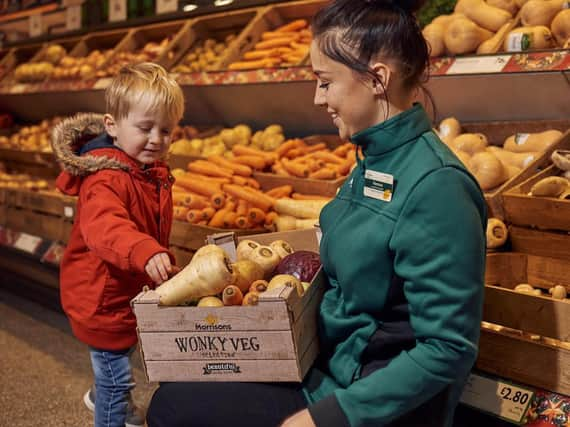Shoppers divided in January as some turn to booze whilst others embrace a healthy lifestyle


The latest figures from Kantar show that sales of vegan products and no-alcohol beer both grew in January, but alcohol was the order of the day with sales up £234m year on year.
Fraser McKevitt, head of retail and consumer insight at Kantar, said: “As well as the usual healthy new year’s resolutions, shoppers also looked to treat themselves in January as a way of coping with another month of restrictions.
Advertisement
Hide AdAdvertisement
Hide Ad"For example, vegan-specific ranges were bought by 6.6 million households this month, a 10 per cent increase on last year, as Veganuary helped sales of those products grow by 23 per cent in the past four weeks compared to 2020. Dry January also played a role in increased spend on no-alcohol beer, which grew by 12 per cent.
"However, many sought to indulge and keep spirits high during a tough winter month and alcohol sales grew overall by £234m, an uplift of 29 per cent on last year.”
The latest figures from Kantar show take-home grocery sales rose by 12.2 per cent during the 12 weeks to January 24. This was an acceleration on the Christmas period, as the reintroduction of national lockdown restrictions and the closure of cafes, restaurants and pubs saw eating out of the home curtailed once more.
In January alone, shoppers spent £1bn more on supermarket food and drink items compared with the same four week period last year.
Advertisement
Hide AdAdvertisement
Hide AdMr McKevitt said: “This period also captured a unique New Year’s Eve – with many people celebrating the night at home instead of going out or hosting family and friends.
"Delivery companies such as Just Eat and Deliveroo felt the benefit as more people than usual tucked into a takeaway, and such services accounted for 6 per cent of all online shopping trips on December 31.”
Kantar said that one year on since the first Covid-19 cases were detected in Britain, there are clear patterns in shopping habits by different age demographics. In the four weeks to 24 January, people under 28, who are typically more open to visiting physical shops, increased spending in larger physical stores by 12 per cent.
Over-45s, on the other hand, cut back spend in bigger supermarkets by 1 per cent, and the rapid growth of online shopping, which hit a record share of 14 per cent in January, is being led by the oldest demographics.
Advertisement
Hide AdAdvertisement
Hide AdMr McKevitt said: “Retired households have boosted their online spend by a staggering 229 per cent compared with January 2020.
"Older people are clearly getting more comfortable and proficient at ordering online and they now make up 28 per cent of the 6.4 million who used online services in Great Britain this month.”
Of the big four supermarkets, Morrisons increased sales the fastest, with growth of 14.3 per cent. It gained share for the eighth month in a row, now claiming 10.4 per cent of all sales.
Tesco had another strong month with sales rising by 12.2 per cent, in step with the overall market, and it maintained a market share of 27.3 per cent.
Sainsbury’s also posted a solid increase of 12.0 per cent whilst Asda’s growth of 9.9 per cent was its best performance since July, helping to narrow the gap with its rivals.